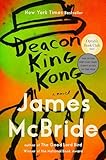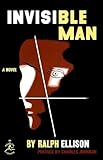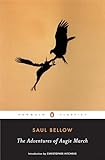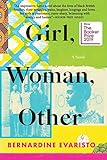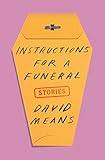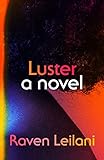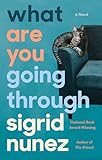Editor’s note: The writer Anthony Veasna So passed away unexpectedly on December 8. We are publishing his Year in Reading entry with this note from his partner, Alex Torres. Anthony’s friends and family have created a memorial fund to establish scholarships in Anthony’s name.
***
When I met Anthony in college, back in 2014, he was taking a class on Moby Dick. In between making penis jokes (his not-so-subtle way of flirting), he’d go on about the beauty of individual sentences and words, like “portentous.” He’d say that nothing was more beautiful than Melville’s images of squeezing sperm.
Anthony thought it was “beyond stupid” (his words, not mine) to read the entire book, so he read the Cetology chapter (the one where Ishmael goes on and on about the zoology of whales) about 20 times instead. He loved details and tangents; he had faith in digressions. He never finished Moby Dick, but if I’m being honest I doubt that Anthony finished any book, except of course for the books that formed his teaching load.
The reading habit that he talks about in this essay started with Moby Dick. Instead of finishing our required reading that quarter, we’d stay up late, watch the first season of Broad City, and talk about Moby Dick during the commercials. (“So is Ishmael more of an Abbi or Ilana?” I remember asking.)
Last February, Anthony and I started fine-tuning the plot of his new novel while eating vegan sushi. I suggested that he read a few passages from some of my favorite books: Orlando Furioso, Invisible Man, and The Savage Detectives. For fun, he recommended that I read The Friend, which I devoured in one sitting. (“How can you binge read like that?” he’d always ask me). Anthony never finished the books I recommended to him, but he’d read my favorite passages–covered in pencil marks and pretentious sticky notes–over and over again, until he was ready to start writing.
It feels strange to me that Anthony’s “Year in Reading” is the last essay I watched him write, that it’s the last essay he will ever write. He wrote individual paragraphs in between baking a Thanksgiving vegetable tart and completing an ab regimen he learned from Crossfit. The morning before he finished the essay, as we were walking to pick up cold brews from the French cafe around the corner from our apartment in the Mission, he told me that he was going to include his favorite Gatsby anecdote in the essay. “The one from high school?” I asked, confirming what I already knew.
Now as I read the essay I think back to Anthony, the 21-year-old hopeless romantic who would text me flirty “Mobius Penis” jokes while he was supposed to be reading hundreds of pages of Moby Dick.
I like to think that Anthony couldn’t finish Moby Dick because he was falling hopelessly in love with me. But if you asked him, he’d probably say he never finished the book–or any book–because I wouldn’t shut up.
-Alex Torres, December 23, 2020
***
This year I have started almost a hundred books and finished none of them. It’s not a terrible way to live as a writer with political and aesthetic aims of the lofty, masochistic variety, whose first novel draft will definitely push the limits of digestible length. Call it reading not as binge-worthy commitment, not proof of literary engagement—indulgent showboating, at its worst—but instead as a mode of aesthetic encountering. I actually recommend everyone to stop taking books so seriously, so monogamously, as though the price of hardcovers were only justified through the number of titles logged into Goodreads. Never have I been more productive as a lover of prose.
Before I continue, I do want to say: maybe not entirely my fault! I did attend a crowded public high school where teachers assigned few novels or full-length plays a year. During sophomore year, my English class spent two months on The Great Gatsby but never chewed on the tragic death of its eponymous schmuck, as the library recalled our copies to give to another class of forty students. (Our teacher, making up for this glaring hole in our Western cultural education, later devoted a week’s worth of instruction to watching the 1974 film adaptation; somehow, our class was denied, yet again, the epiphanic experience of F. Scott Fitzgerald’s ending, however diluted by David Merrick’s sterile and wack direction. The next semester our teacher resigned herself to sending our class off into the SSR woods. As in silent sustained reading. As in the educational cornerstone of elementary language arts, of second graders learning to concentrate and sit frozen with stoic obedience.) Even my AP Literature seminar of college-bound seniors focused on just two books: Hamlet and Invisible Man. While I remember this teacher somewhat fondly, she was not equipped to riff on Black characters and the failures of white-centered Marxism.
And before I self-incriminate any further: I swear (as a courtesy to my editor and agent and public-facing persona, as well as the privacy of my literary group chats, not to forget the boyfriend who hates how far-reaching my dumb, petty mouth often stretches), truly, emphatically, that these past months of noncommittal reading have little to do with hot takes on big four publishing conglomerates. Or the nihilism of overeducated, philosophy queer bros I sometimes, unfortunately, find myself guilty of affecting.
Anyway, it’s true! My mushy quarantine brain has been commandeered by a fuck-boy approach to literature. I remain incapable of finishing novels and poetry collections, memoirs and nonfiction books and academic monographs, or, at my most scattered, single short stories, even those written by dear friends. At any given moment, thirty to fifty tabs—usually the preview pages of books I’ve marked to buy or borrow from the library, which land on my radar at the recommendation of peers and mentors whose literary tastes I adore—are left open in Google Chrome for weeks on end, maybe months. I also sabotaged four book clubs, one of them organized by yours truly.
Through a number of these books I made a not insignificant, not not respectable, headway, having consumed a chunk of their words before dropping their characters and speakers like I did a majority of my high school graduating class—with zero notions of ill-will. Hopefully, someday, I will finish every book I started. Perhaps when I write to the ending of my novel. While tinkering with my opening pages, I read so many first pages while stoned in my neighborhood bookstore. Several weeks later, when I got stranded in the gulf between chapters two and three, I proceeded to the next fifty pages of half of these same books. Each time my dialogue comes out stilted I read bangers from The Collected Poems of Frank O’Hara. All I want is for my characters to speak like Frank O’Hara.
To formulate my novel’s voice, the narrator’s range of telling, I hopped through Friedrich Nietzsche’s The Gay Science, Danez Smith’s Homie, James McBride’s Deacon King Kong. Its structure: I got a third of the way into those collected interviews of Roberto Bolaño’s The Savage Detectives. Its ancestors: a combined thirty pages of Ludovico Ariosto’s Orlando Furioso and Henry Fielding’s The History of Tom Jones, before I realized how hopeless it was to locate heirs for my stoner novel about queer Khmer Americans. Might as well be my own daddy.
Okay, I misrepresented. I trekked to the endings of a few novels. Right as I was passing the ten-year mark for my high school graduation, I reread Invisible Man and finally understood just how little I had learned in AP Literature. How the fuck did I miss so much of Ellison’s genius? I asked myself, overwhelmed by this epic I’ve always thought to be a favorite of mine. I guess understanding has nothing on profound impact.
Then I read The Adventures of Augie March by Saul Bellow. It’s absurd to me that I’ve cast aside dozens of novels and somehow finished two dense behemoths. Maybe I just vibe with lost narrators full of hope. Like Ellison’s narrator, I want to believe that “when I discover who I am, I’ll be free.” Like Augie, I haplessly take wisdom from those who cannot guide me. Too bad over 1.5 million people died in the Cambodian genocide.
I did love Girl, Woman, Other by Bernardine Evaristo. Or maybe I loved knowing the characters of this kaleidoscopic novel. Maybe I need to record the lives of as many archetypal Khmer queers I can imagine.
I should return to the books I have yet to finish! The first story of David Means’s collection Instructions for a Funeral, “Fistfight, Sacramento, August 1950,” dazzled me with its slow hypnotic recursion, its dilation of time that ebbs and flows with every sucker punch, every decline and uptick of glorious, pathetic testosterone. I don’t understand how others can so easily open this collection without spending all their time basking, cheering, stepping inside those fighting passages. And I felt a similar sensation, this devotion for swaggering, cocky syntax, while immersed within Luster. That breathless account of delivery gigs and mishaps, it dead-ass bullied me into dropping Raven Leilani’s debut novel and working on my own. I was slapped by that whirlwind of manic energy and meaning-making the protagonist, Edie, conveys from one drop-off spot to the next until she slams hard against the guarded stony walls of her fuck buddy.
Speaking of sentences, I’m stuck on the first line of Sarah M. Broom’s The Yellow House. I’m a love-sick idiot. I can’t break from this absurd romantic loop. The cosmic movement from aerial shots to the home address that Broom knows best—that “scab of green” where her brother, Rabbit, her brother, Carl, can be found sitting “poised on an ice chest,” this lone man of two names always searching and fishing for wonder—was enough to plant the seeds of my own essay collection that’s now already germinating.
I admit I am a selfish reader. I consume literature for the sustenance of my own writing. Maybe I should be more respectful of these stories and their authors and take them all on their own terms of understanding. I should lock my feet into those proverbial shoes of others not myself the way my sophomore English teacher, for the betterment of our society, dictated my class to do.
Still, I’ve always thought of total empathy as overrated. That it teaches one to care, sure, but never to build intimacy that accommodates for unknowability. At least not without bleaching nuance with bloated universal ideas. Plus I try not to befriend those who seek listeners and nothing else—not collaborators, not intellectual and cultural exchange—because I love dialogue! How awesome to witness Sigrid Nunez match the genius of The Friend with What Are You Going Through? Thank god Nunez granted her narrator the freedom of generous interiority, emotional responses, visceral thinking. Pretty sadistic if the narrator were forced to comfort a dying, suicidal friend with her inner voice gagged and duct-taped into silence.
Fuck, what the hell do I know? I’ve been on page 130 for months. Of course—I hate to say—that didn’t stop me from praising this novel to everyone I could.
More from A Year in Reading 2020
Don’t miss: A Year in Reading 2019, 2018, 2017, 2016, 2015, 2014, 2013, 2012, 2011, 2010, 2009, 2008, 2007, 2006, 2005


